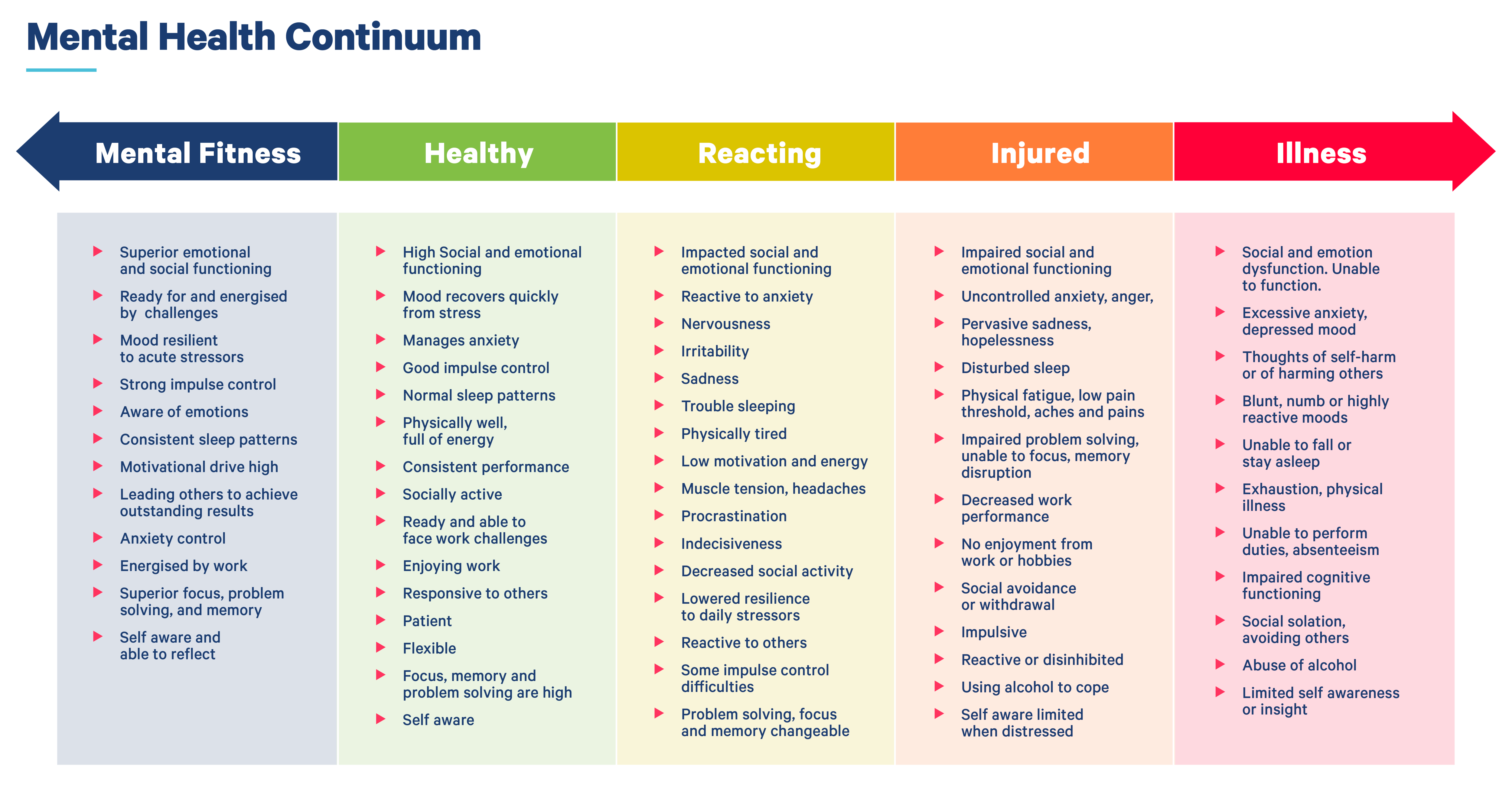Our Industry Mental Health and Wellbeing Strategy
The AFL Industry Mental Health and Wellbeing Strategy (The Strategy) 2020 - 2022 is the policy framework that guides the responses of the AFL Mental Health and Wellbeing Team and the AFL Industry Mental Health and Wellbeing Steering Committee.
Being healthy means more than just physical wellness. In an environment of increasing community and industry awareness of mental health, we know that mental health matters. The Strategy is the first aligned strategic framework to guide an industry wide approach to the mental health and wellbeing of all employees, umpires, coaches and players across the AFL ecosystem. It aims to guide the planning and implementation of wellbeing initiatives, mental health promotion and prevention programs and mental healthcare services delivered across the AFL industry.
The Strategy's Vision
The Strategy has a vision to ensure all our people are mentally fit and ready to thrive and support each other. Through policy and culture reform The Strategy will lay a foundation for the industry that reduces vulnerability to mental health problems and increases protective factors that promote mental fitness. The Strategy will guide education and workforce development activities that increase our people’s capacity to cope with life transitions and stresses.
The Strategy was developed in response to the independent Industry Mental Health Review, conducted in 2019. The activities of the Mental Health Team and the Steering Committee are overseen by the AFL Executive and the AFL Commission.
The Strategy's Purpose
To support the health and wellbeing of our people, to ensure the health and future of the game.
Guiding Principles
The Strategy is underpinned by five guiding principles which help us to focus the work that we do.
A Person Centred, Family and Life Cycle Approach
A person centred approach takes into account that everyone is a unique individual who has different life experiences, personality, culture and needs. Being person centred means there is no one size fits all for mental health.
A life cycle approach acknowledges we have different needs at different life stages. Our wellbeing needs in adolescence are different to adulthood and later life. We acknowledge the critical role of family.
The Mental Health Continuum
The Continuum is a way to understand that mental health isn’t something we either do or don't have. Our mental health is like our physical health - it changes over time in response to different experiences and stresses. Knowing we all exist on the same mental health continuum helps reduce stigma. It also acknowledges that managing our mental health is important at every stage of the continuum.

A Shared Responsibility
Achieving positive mental health and wellbeing for our Clubs and communities is based on everyone working as one team – a shared responsibility. We all have a part to play in maintaining our own mental health and wellbeing. We all have a responsibility to help others to seek help early, when mental health challenges arise.
From Prevention to Recovery
The continuum of mental health and wellbeing intervention can be summarised in three phases: Prevent - Respond - Recover.
These three phases describe the approaches we need across the entire mental health continuum. At the AFL, we believe our football communities are critical in contributing to the prevention of mental ill health. Healthy communities, where young people and families have a place to connect, are physically active and participate as a team are good for mental health.
Find out more about mental health promotion and prevention activities in sport.
In the AFL Talent pathways, primary prevention activities that build mental fitness skills are a crucial part of preparing for elite competition.
Modify Risks and Promote Protective Factors
An understanding of risk and protective factors for mental ill-health help us to reduce modifiable risk factors and increase individual skills and environmental factors that support mental health and wellbeing. Protective factors are those that work to reduce the likelihood of mental health challenges emerging or lessen the impacts of existing mental health challenges. Risk factors are those that increase the likelihood of mental health challenges emerging or worsening. In football clubs risk factors might include a non-inclusive culture and psychologically unsafe environments.
Read more about psychological safety in sport.
Other risk factors include exposure to racism, bullying, cyber abuse, or a harmful alcohol culture in sporting clubs. In sporting clubs, a singular focus on performance at all costs, over training and pressurised mental toughness have all been associated with increased risks for mental health challenges.
How Can We Achieve Our Vision?
- Alignment: Work as one industry and strengthen mental health and wellbeing partnerships.
- Culture: Build mentally fit and capable Clubs
- Promotion: Promote and grow mental health, wellbeing and mental fitness.
- Responsive: Respond by helping people know where to find safe, effective and coordinated mental healthcare.
- Data: Build the evidence and ensure continual evaluation and improvement.
